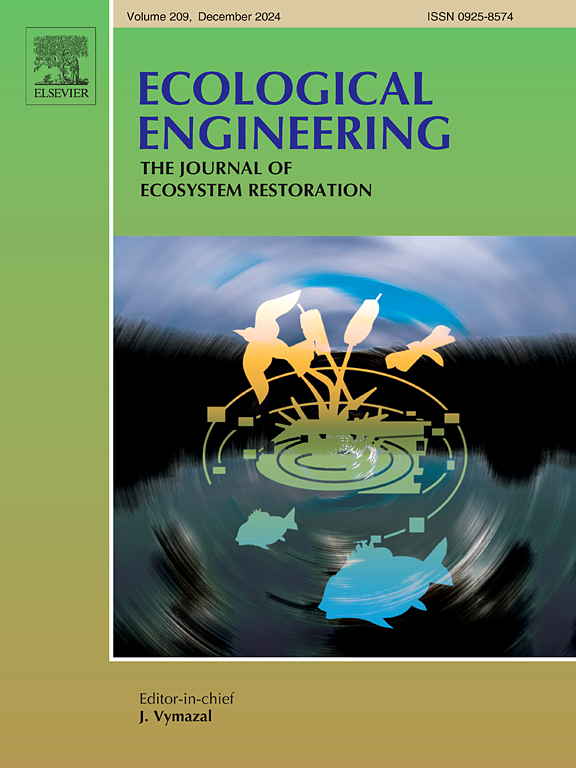“生态单位服务”:海堤强化单位提供的正面和负面生态服务
IF 4.1
2区 环境科学与生态学
Q1 ECOLOGY
引用次数: 0
摘要
在全球范围内,用海堤等人工结构物取代天然海岸线的速度正在加快。这些硬工程防御对生态系统功能有负面影响。生态工程技术有可能通过增加沿海基础设施提供的生态系统服务的范围和质量来减轻其中的一些影响。为改善传统海堤的生态性能,一种常用的策略是加装强化装置或“生态装置”。然而,尽管许多研究报告了生态单元对生物多样性的积极影响,但相对较少的研究关注这些干预措施提供的生态系统服务。在这篇综述中,我们综合文献来确定潜在的生态系统服务和与生态单位相关的负面影响。研究结果表明,生态单元可以提供多种生态系统服务,特别是调节服务和文化服务。我们还确定了生态单元的几个缺点,包括生态系统的危害以及实施所产生的成本。这种对生态单元的效益和成本的全面审查将促进明智的决策和对沿海基础设施进行更具战略性的生态管理。本文章由计算机程序翻译,如有差异,请以英文原文为准。
‘Eco-unit services’: Positive and negative ecological services provided by seawall enhancement units
The replacement of natural coastlines with artificial structures such as seawalls is accelerating globally. These hard engineered defences have negative impacts on ecosystem function. Eco-engineering techniques have the potential to mitigate some of these effects by increasing the range and quality of ecosystem services offered by coastal infrastructure. Implementation of retro-fitted enhancement units, or ‘eco-units’, is a common strategy used to improve the ecological performance of traditional seawalls. However, despite numerous studies reporting the positive effects of eco-units on biodiversity, relatively few have focused on the ecosystem services provided by these interventions. In this review, we synthesize the literature to determine the potential ecosystem services and negative consequences associated with eco-units. Our findings indicate that eco-units can deliver a diverse range of ecosystem services, particularly regulating services and cultural services. We also identified several drawbacks of eco-units, including ecosystem disservices as well as costs incurred from their implementation. This comprehensive examination of the benefits and costs of eco-units will facilitate informed decision-making and more strategic ecological management of coastal infrastructure.
求助全文
通过发布文献求助,成功后即可免费获取论文全文。
去求助
来源期刊

Ecological Engineering
环境科学-工程:环境
CiteScore
8.00
自引率
5.30%
发文量
293
审稿时长
57 days
期刊介绍:
Ecological engineering has been defined as the design of ecosystems for the mutual benefit of humans and nature. The journal is meant for ecologists who, because of their research interests or occupation, are involved in designing, monitoring, or restoring ecosystems, and can serve as a bridge between ecologists and engineers.
Specific topics covered in the journal include: habitat reconstruction; ecotechnology; synthetic ecology; bioengineering; restoration ecology; ecology conservation; ecosystem rehabilitation; stream and river restoration; reclamation ecology; non-renewable resource conservation. Descriptions of specific applications of ecological engineering are acceptable only when situated within context of adding novelty to current research and emphasizing ecosystem restoration. We do not accept purely descriptive reports on ecosystem structures (such as vegetation surveys), purely physical assessment of materials that can be used for ecological restoration, small-model studies carried out in the laboratory or greenhouse with artificial (waste)water or crop studies, or case studies on conventional wastewater treatment and eutrophication that do not offer an ecosystem restoration approach within the paper.
 求助内容:
求助内容: 应助结果提醒方式:
应助结果提醒方式:


